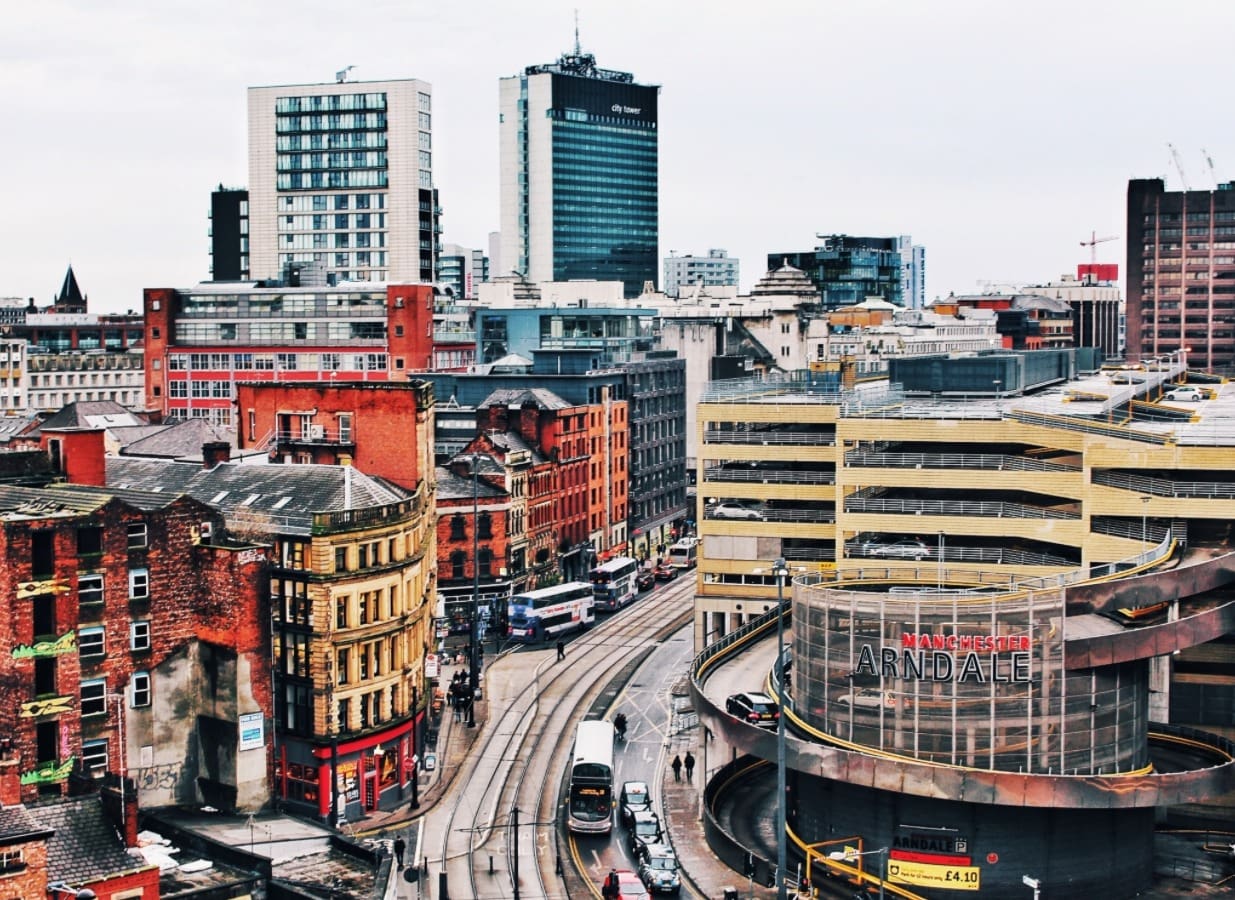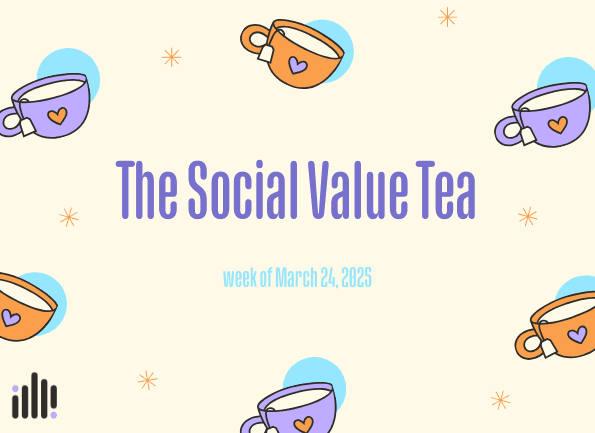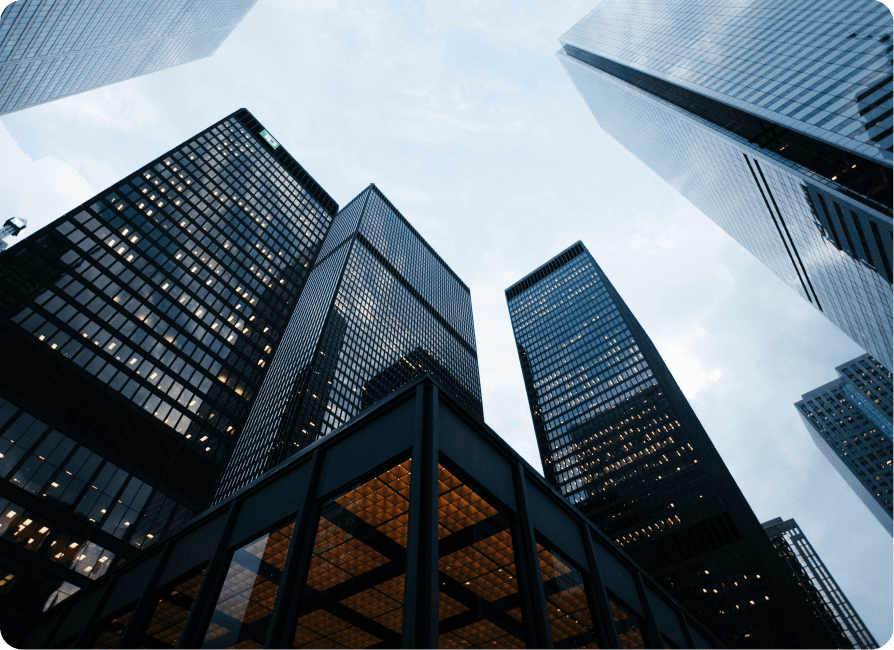Social value and COVID-19 recovery: Greater Manchester’s refreshed framework
Post-pandemic, we’re all looking to increase resilience and build back better – whether that’s as businesses, individuals, communities, regions, or as an entire nation. While extremely tumultuous and chaotic, this year has also left a great opportunity for widespread, positive social change. To not only recover as a nation, but to come out the other side stronger and more socially valuable for it.
We’re taking inspiration from Greater Manchester Combined Authority’s recently updated Social Value Framework to explore what social value can look like throughout COVID-19 recovery.
A great opportunity for change
The pandemic has worked to illuminate a lot of inequalities and poor systems across the UK. From inaccessible labour markets to poor employment practices, this period of struggle has hit some parts of the nation significantly harder than others. And this only highlights a need for better practices and systems moving forward. We have to build back better with more equality and greater resilience for all walks of life.
We’ve also seen some positive change come out of COVID-19, such as less air pollution in city centres and a massive uptake in community action. Greater Manchester introduced their refreshed social value framework to “accelerate and augment” the positive changes already seen throughout the pandemic. Not only fight inequality as it has been exposed throughout 2020, but to continue to move towards a stronger, fairer, and greener society.
In a recent release, the Greater Manchester Combined Authority said: “An opportunity now exists to redefine and strengthen the way ‘social value’ is used in Greater Manchester, both through procurement and as part of a broader, more purposeful, outcomes-focussed and inclusive approach to operating and doing business for organisations across all sectors.”
Employment
Poor employment practices across the nation have only exacerbated the crisis. This past quarter, redundancies increased by 114,000 – the biggest jump since 1995. And the number of people claiming out-of-work benefits reached 2.7 million – over double March’s pre-lockdown figure.
Whether it’s inequalities in recruitment, a lack of flexible work opportunities, or low standards in employee engagement, care, and security, the UK’s employment systems have let a lot of people down this year. And to come back from this pandemic stronger, it’s something that will need a lot of work and focus.
Global climate change
As a result of lockdown and significantly reduced traffic, cities all over the world have seen a noticeable drop in air pollution. The first few weeks of UK lockdown saw levels of dangerous pollutants cut by up to 40% in some towns and cities.
While lockdown brought a lot of negatives, the uptake of walking and cycling as opposed to cars, trains, or buses has proven incredibly beneficial in terms of climate change.
With this in mind, to become greener overall, we can’t simply go back to ‘normal’ once COVID-19 subsides. We’ve already made progress in the right direction and if some of these new habits remain, we can continue to keep progressing in terms of clean air in the UK.
Inequalities
COVID-19 has only emphasised inequality across our country.
Not only are people from certain backgrounds more at-risk from the virus, but some are also left out of the labour market – and therefore feeling the economic impacts much more harshly or struggling in terms of childcare, family support, or medical needs. It begs the question: how can we support people from all walks of life to create more equal opportunities?
How Manchester is building back better
Greater Manchester is one example of a city region who is using the momentum provided by COVID-19 for much greater, far-reaching change. They’re looking to embed social value into existing procurement systems. They are taking the opportunity for change this year and running with it.
In their own words, from the release: “Grounded in the UN Sustainable Development Goals, the Greater Manchester Strategy, and Local Industrial Strategy, it is not a benchmarking scheme or just a procurement tool, but a driver of actions aimed at making a difference in the post-COVID period.”
Manchester was already an early adopter of the Public Services (Social Value) Act 2012 and a long-time leader of social value across the UK. But now they’ve introduced a refreshed version of the existing Greater Manchester Social Value Framework that explicitly responds and considers the likely long-term impacts of COVID-19.
A clear focus for widespread change
The six key objectives include:
Some examples of Manchester’s refreshed efforts with social value include using the GM Good Employment Charter to encourage businesses to demonstrate high employment standards. 111 businesses have already signed it, covering almost 185,000 people.
They are also calling for organisations to be greener and strive towards carbon neutrality by 2038, offering greener business travel options to staff. And finally, Bridge GM is a network of local businesses, education leaders, and career professionals, supporting the city region’s young people by developing their skills for later working life.
Leading the way
Manchester is leading the way by creating an easily accessible, free to use, and adaptable framework for local procurement teams and businesses to follow. Not only are they releasing suggested actions and sources of support and guidance, but they are setting out measurable objectives to establish a more robust evaluation criteria during procurement.
They are making social value easier to understand and engage with on the individual business level, while also making sure every procurement process is able to squeeze as much value as possible out of every project.
This year holds massive potential for widespread, positive social change across the UK. And seeing cities like Manchester make social value a strict priority during COVID-19 recovery serves as a much-needed light at the end of the tunnel that has been 2020 so far.
At Impact, we’ve built a powerful feature that makes it easier for procurement teams to manage the social value side of the procurement process. Never has it been easier to monitor, measure, and evaluate the social impact of incoming bids. If you have any questions, or would like a demo, get in touch on 0161 532 4752.




